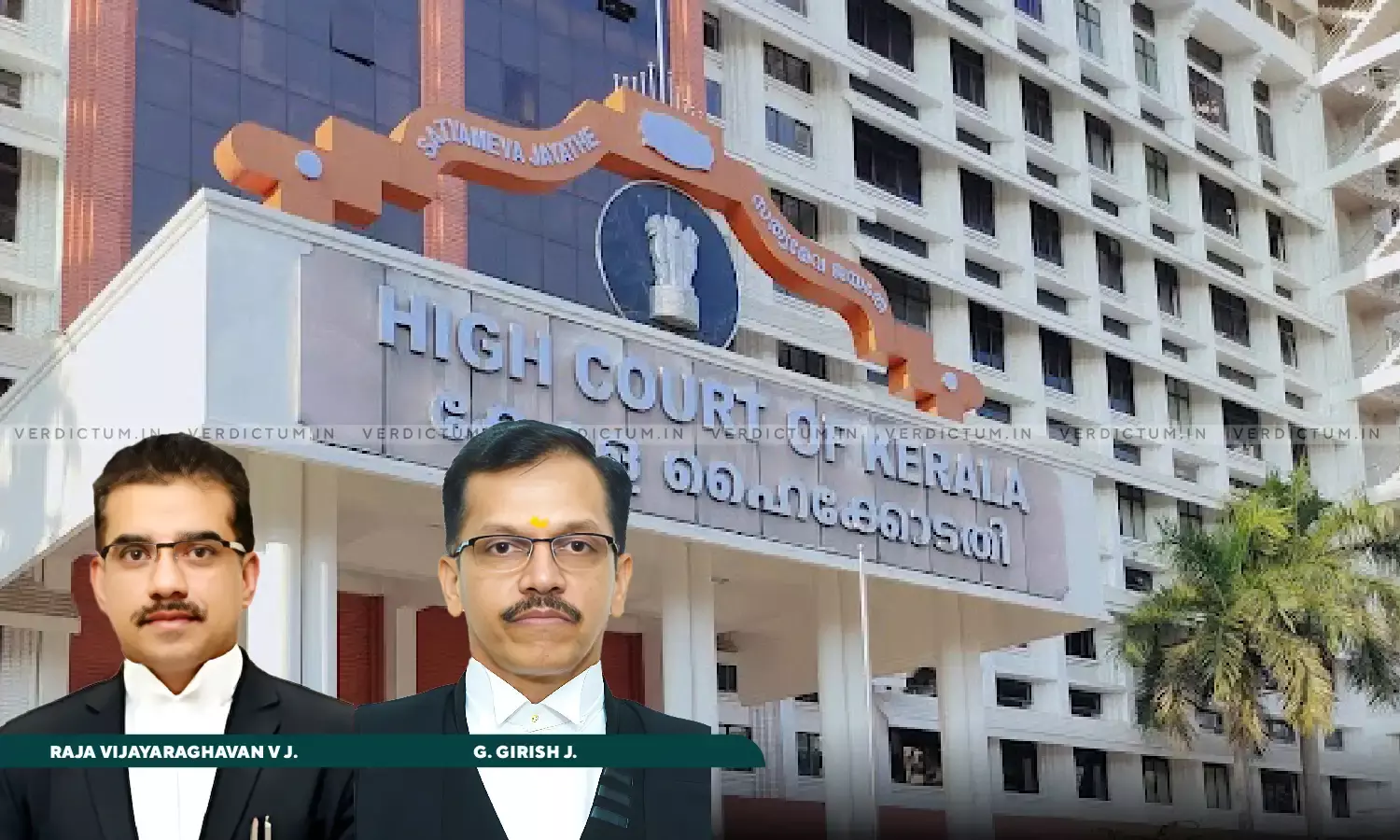Govt's Failure To Consider Representation Of Detenu Promptly Violates Constitutional Right Under Article 22(5) Of Constitution: Kerala HC
The Kerala High Court held that the failure on the part of the Government to consider the representation of the detenu promptly is violative of the constitutional right under Article 22(5) of the Constitution.
The Court held thus in a writ petition filed by a woman whose husband was detained pursuant to an order of the District Collector/District Magistrate under Section 3 of the Kerala Anti-Social Activities (Prevention) Act, 2007 (KAAPA).
A Division Bench comprising Justice Raja Vijayaraghavan V. and Justice G. Girish observed, “In the case on hand, we find that the failure of the Government to consider the representation with promptitude would clearly violate the constitutional right of the detenu under Article 22(5) of the Constitution of India. … As we hold that the detenu is entitled to succeed on grounds (g) and (h), which goes to the root of the matter, we do not think that it is necessary to advert to the other contentions.”
Advocate M.H. Hanis represented the petitioner while Public Prosecutor K.A. Anaz represented the respondents.
Facts of the Case -
The writ petition sought issuance of a writ of habeas corpus and to quash the order of detention against the detenu. It was on account of the involvement of the detenu in six cases, that the proceedings under KAAPA were initiated against him. The six cases were registered under the different statutes in the following manner –
Cases in which the final report was laid:
• Section 9 read with Sections 2 (36), 39, 50, and 51 of the Wild Life Protection Act, 1972
• Sections 452 and 27 of the Arms Act, 1959
• Section 307 read with Section 149 of the Indian Penal Code (IPC)
Cases under investigation:
• Section 20(b)(ii)(B) of the Narcotic Drugs and Psychotropic Substances Act, 1985 (NDPS Act)
• Sections 3 and 25(1-B)(a) of the Arms Act, 1959
Settled Cases:
• Section 308 read with Section 34 of the IPC
Taking note of the predilection of the detenu to continue to involve himself in anti-social activity and to disrupt public order, a report was submitted by the District Police Chief and a further report before the authorized officer recommending the initiation of proceedings under the KAAPA. On this basis, the detention order was executed. Being aggrieved by this, the detenu’s wife approached the High Court.
The High Court in view of the above facts said, “The Apex Court has held that representation submitted by the detenu relates to the liberty of the individual, the highly cherished right enshrined in Article 21 of our Constitution. Clause (5) of Article 22 therefore, casts a legal obligation on the government to consider the representation as early as possible. The words “as soon as may be” occurring in clause (5) of Article 22 reflect the concern of the Framers that the representation should be expeditiously considered and disposed of with a sense of urgency without an avoidable delay.”
The Court elucidated that though there is no period prescribed either under the Constitution or under the concerned detention law, within which the representation should be dealt with, there shall not be any supine indifference or slackness in considering the representation and any unexplained delay in the disposal of representation would be a breach of the constitutional imperative and it would render the continued detention impermissible and illegal.
“This is because the confirmation of detention does not preclude the government from revoking the order of detention upon considering the representation. Secondly, there may be cases where the government has to consider the representation only after confirmation of detention. Clause (5) of Article 22 suggests that the representation could be received even after confirmation of the order of detention. The words ‘shall afford him the earliest opportunity of making a representation against the order’ in clause (5) of Article 22 suggest that the obligation of the government is to offer the detenu an opportunity to make a representation against the order before it is confirmed according to the procedure laid down under the relevant statutory provisions”, it added.
Accordingly, the High Court allowed the writ petition and quashed the detention order.
Cause Title- Saritha K.P. v. State of Kerala & Ors. (Neutral Citation: 2024:KER:54278)
Appearance:
Petitioner: Advocates M.H. Hanis, P.M. Jinimol, T.N. Lekshmi Shankar, Nancy Mol P., Anandhu P.C., Neethu G. Nadh, and Ciya E.J.
Respondents: PP K.A. Anaz












